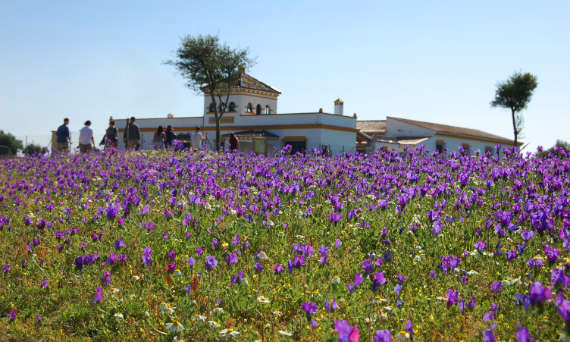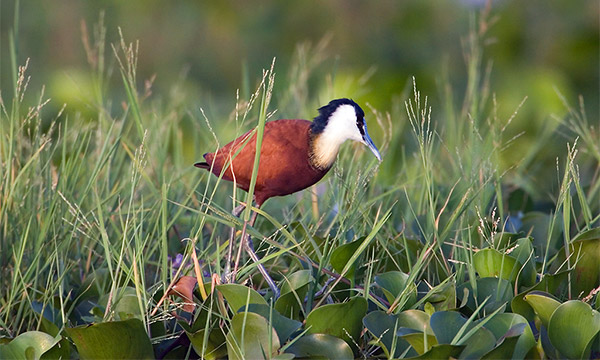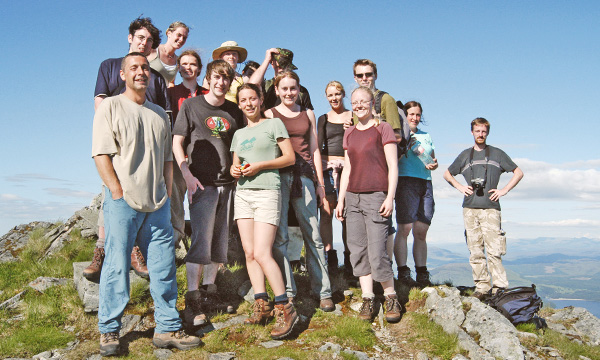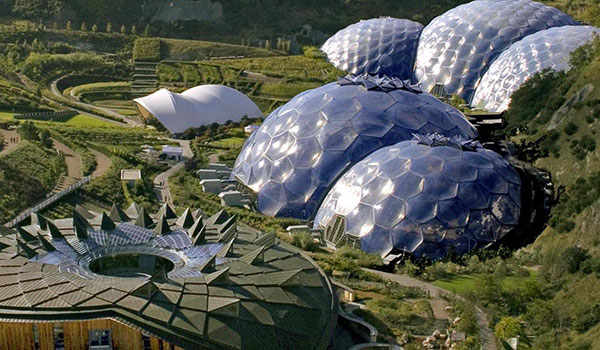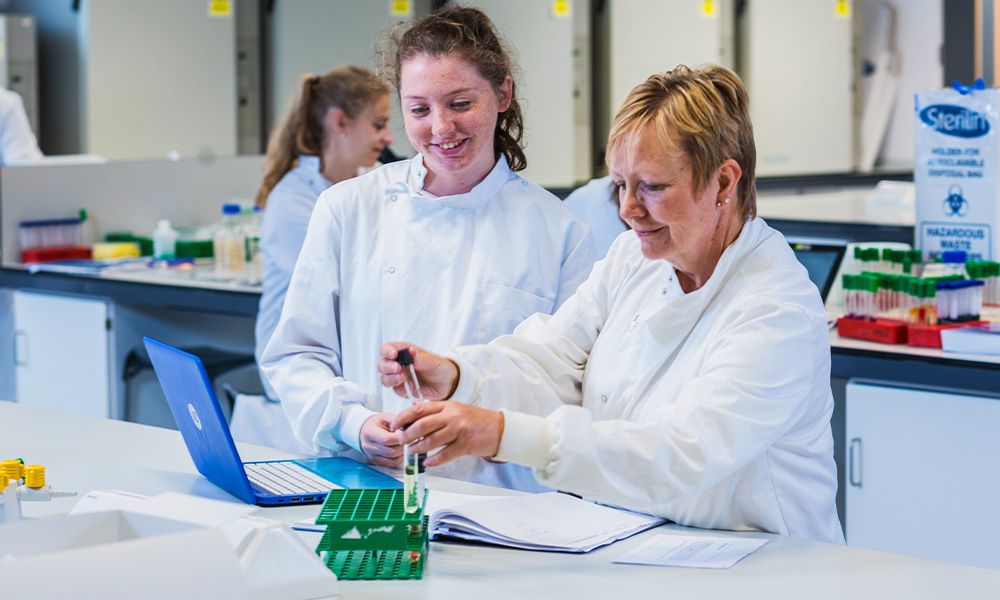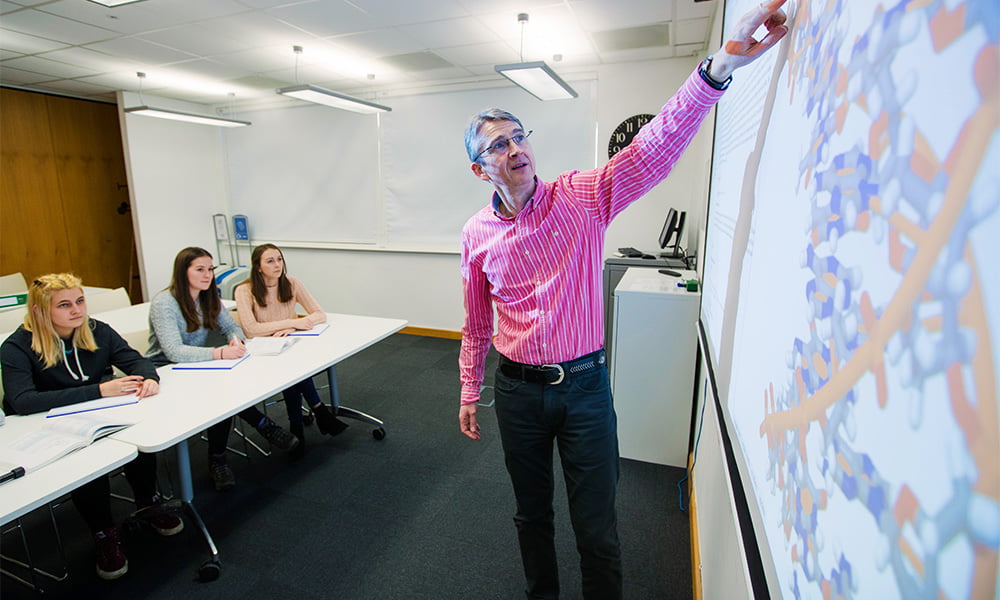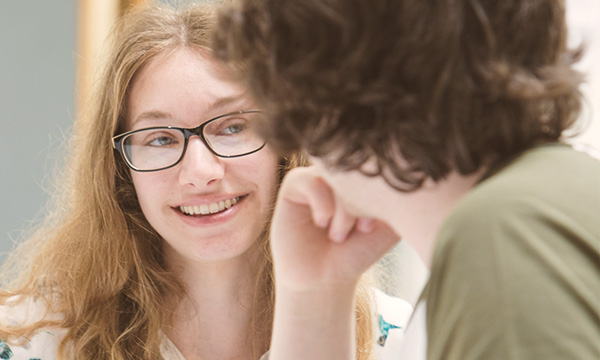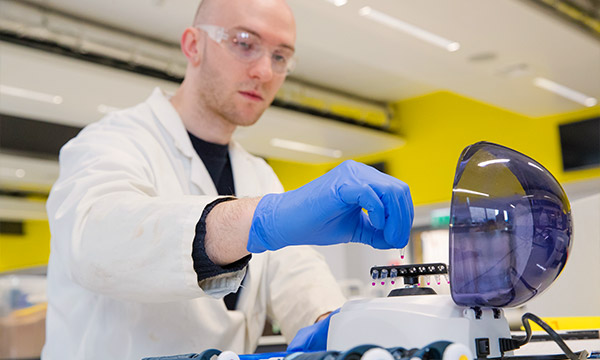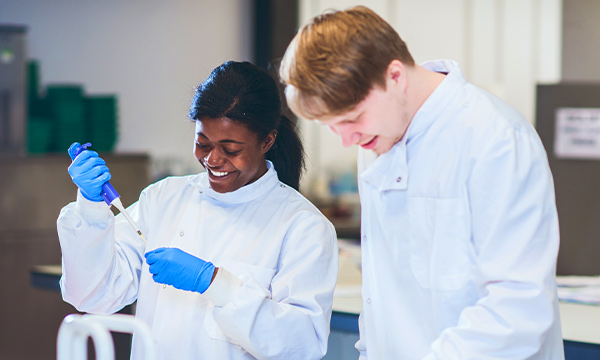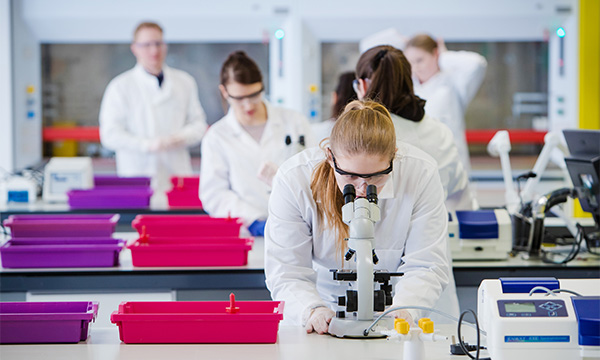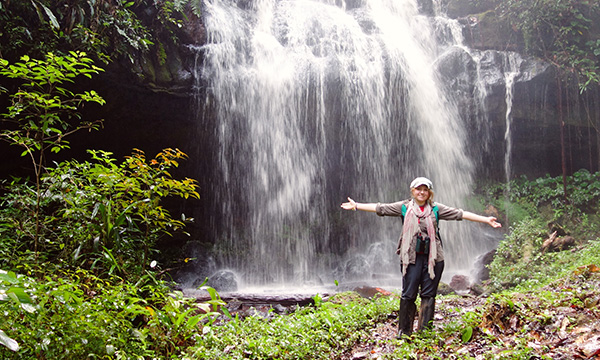Tailor your degree to match your specific interests by choosing from a wide variety of modules with the option to specialise, for example, in the biomedical, biochemical or environmental aspects of biology. You can develop your knowledge of a range of skills required to tackle some of the biggest challenges facing our planet, whether it's researching underlying scientific principles, the development of new treatments for disease or helping to protect endangered species.

Biology Degrees
Linked icons
All Courses
Beyond the labs
We take advantage of our natural surroundings to create amazing fieldwork experiences in addition to opportunities to travel the world with residential overseas field trips.
-
Spain
Home to over 1,500 species of plants, 400 species of birds and 50 terrestrial mammals, Doñana National Park is one of the most important biodiversity hotspots in Europe.

-
Kenya
Based in the beautiful Rift Valley, you'll explore the staggering biodiversity of local aquatic and terrestrial ecosystems, at the same time considering how best to monitor and protect it.

-
Scotland
The ecology field course to Mull provides a chance to experience some amazing landscapes, from mountains to coasts and to learn about the ecology of key plant and animal species.

-
Eden Project
This week-long residential field trip explores the flora, fauna, and soil ecology of Cornwall, and the conservation efforts underway to restore the natural habitats of this unique region.

Careers
A degree in Bioscience can enable you to specialise in a given area, but because we embed a range of transferable skills into the curriculum you are not limited purely to science-based careers. You can pursue a wide range of careers with our bioscience degrees, from biomedical science to research or from pharmacology to business.
Examples of the types of careers pursued by our Biosciences graduates include:
| Biomedical Scientist | Nature Conservation Officer | University Lecturer |
| Biotechnologist | Soil Scientist | School Teacher |
| Microbiologist | Crop Scientist | Molecular Geneticist |
| Ecological Consultant | Forensic Scientist | Reserve Manager |
| Pharmaceutical Scientist | Research Ecologist | Food Technologist |
Whatever your career aspirations may be, or even if you're still not quite sure, we're here to support you to reach your goals. You will undertake a module in employability skills, giving you excellent preparation for applying to graduate-level jobs and graduate scheme, and our dedicated Careers Service is here to assist you every step of the way. From helping you make a lasting impression with your CV to ensuring you are well prepared for interviews and assessment centres, they are able to offer you tailored and personalised support. What's more, they offer lifelong careers support to our graduates so, if you need us, we will always be here to help.
Every aspect of learning
Our academics are leaders in their fields of research and deliver enthusiastic and engaging teaching through a range of methods.
-
Assessment
The assessment process varies across modules but includes laboratory reports, essays, independent projects reports, group presentations, multiple-choice tests and exams. Assessment is an on-going process, rather than being left solely until the end of the degree. This means we are able to offer feedback to you throughout your degree as part of your on-going preparation for when modules are examined at the end of each year.

-
Lectures
Lectures provide an introduction to the key issues and findings in each topic and are delivered by an expert in that particular area. They usually last one hour and should be complemented by further independent study by reading the relevant literature on the topic. We generally provide digital recordings of lectures for revision purposes and online reading lists of suitable books and journals that are available either digitally or in print from our library.

-
Tutorials
Group tutorials are usually one-hour sessions where you will be encouraged to discuss your learning with fellow students, under the guidance of an academic tutor. During these in-depth study sessions, you will learn key skills and discuss key skills that relate to your degree.

-
Academic support
We foster a highly supportive learning environment, making sure you are fully supported to achieve your full academic potential. This includes assigning you an Academic Tutor with whom you will meet regularly throughout your degree to discuss your academic progress and access to our Student Learning Developers, who offer workshops and advice on improving your academic skills.

-
Practical classes
These are designed to help you to discover the key principles underpinning the topic of study, whilst also developing your skills which you will be able to put to use throughout your degree and future career. Practical classes could include experiments conducted in our teaching laboratories, research projects, workshops, field trips and residential field courses.



